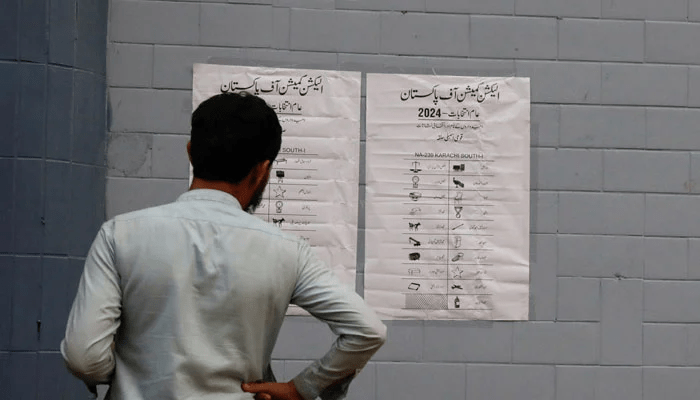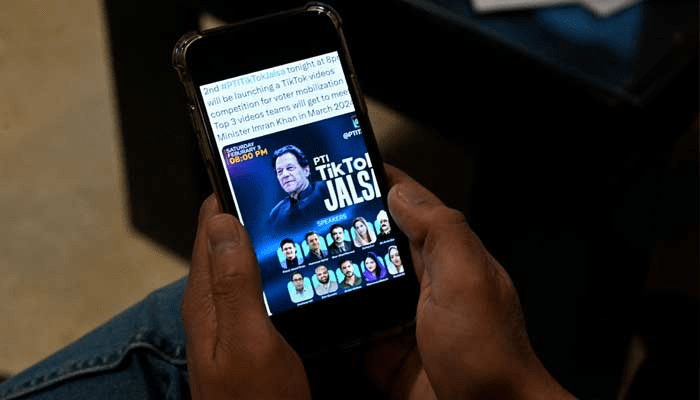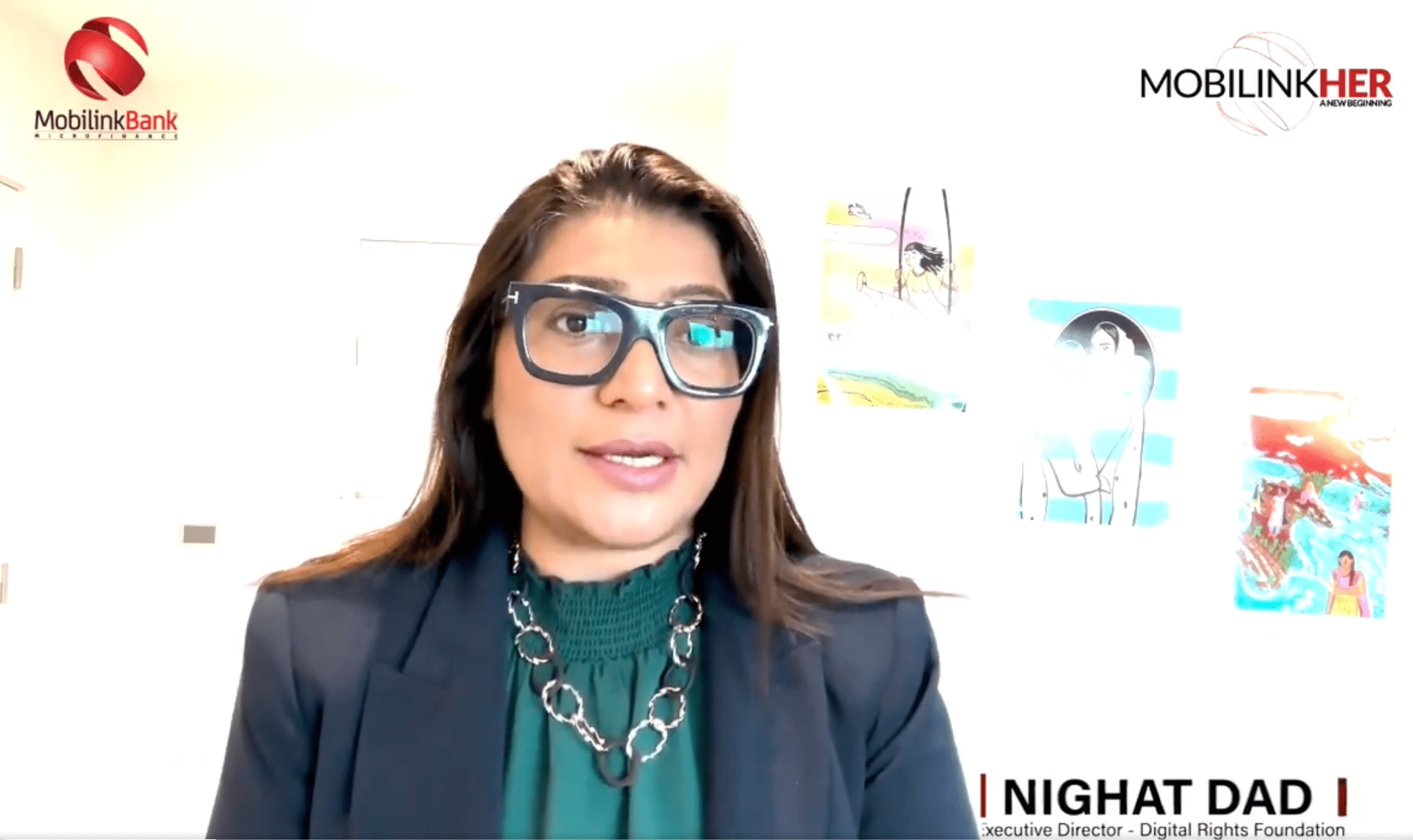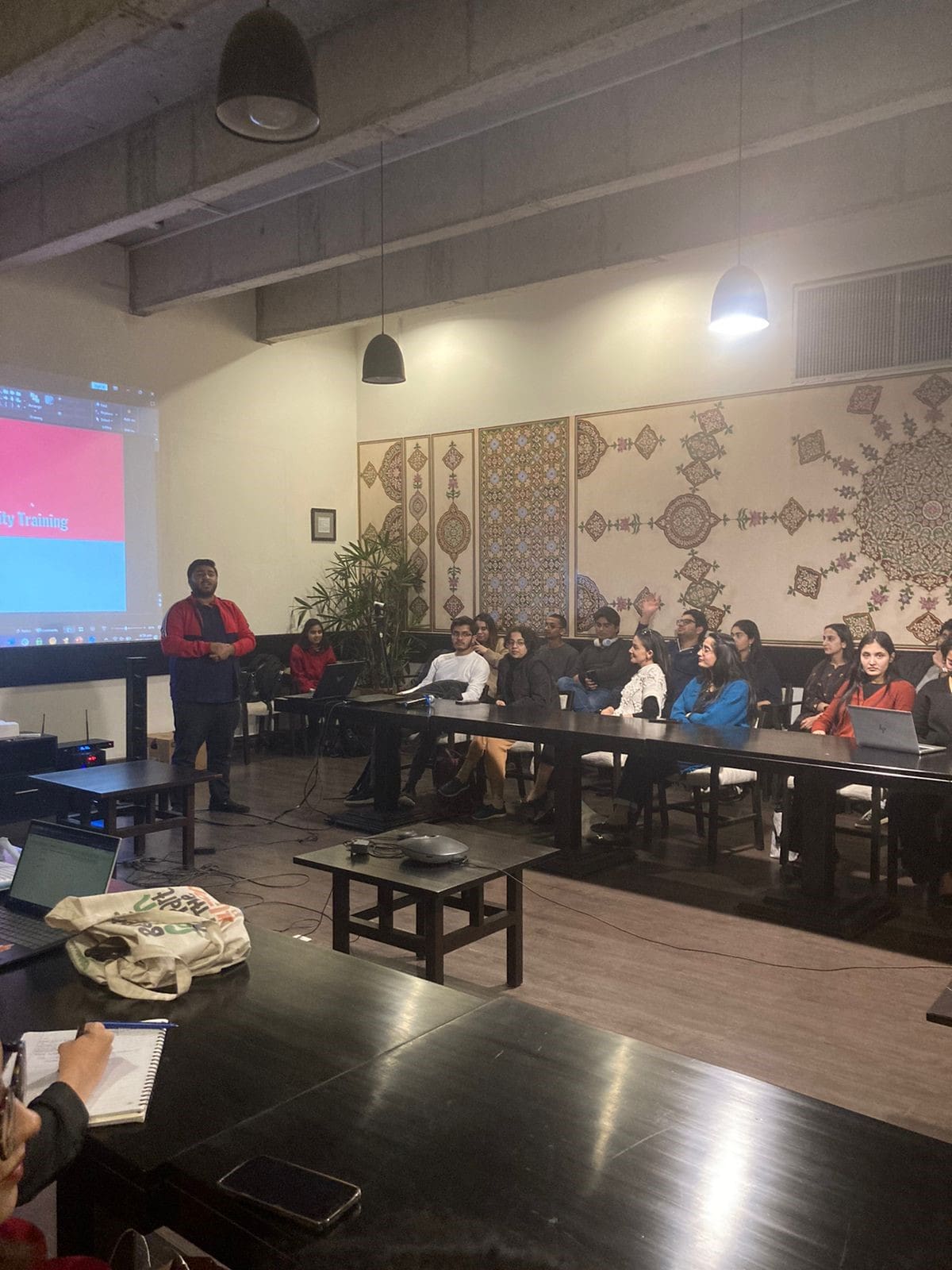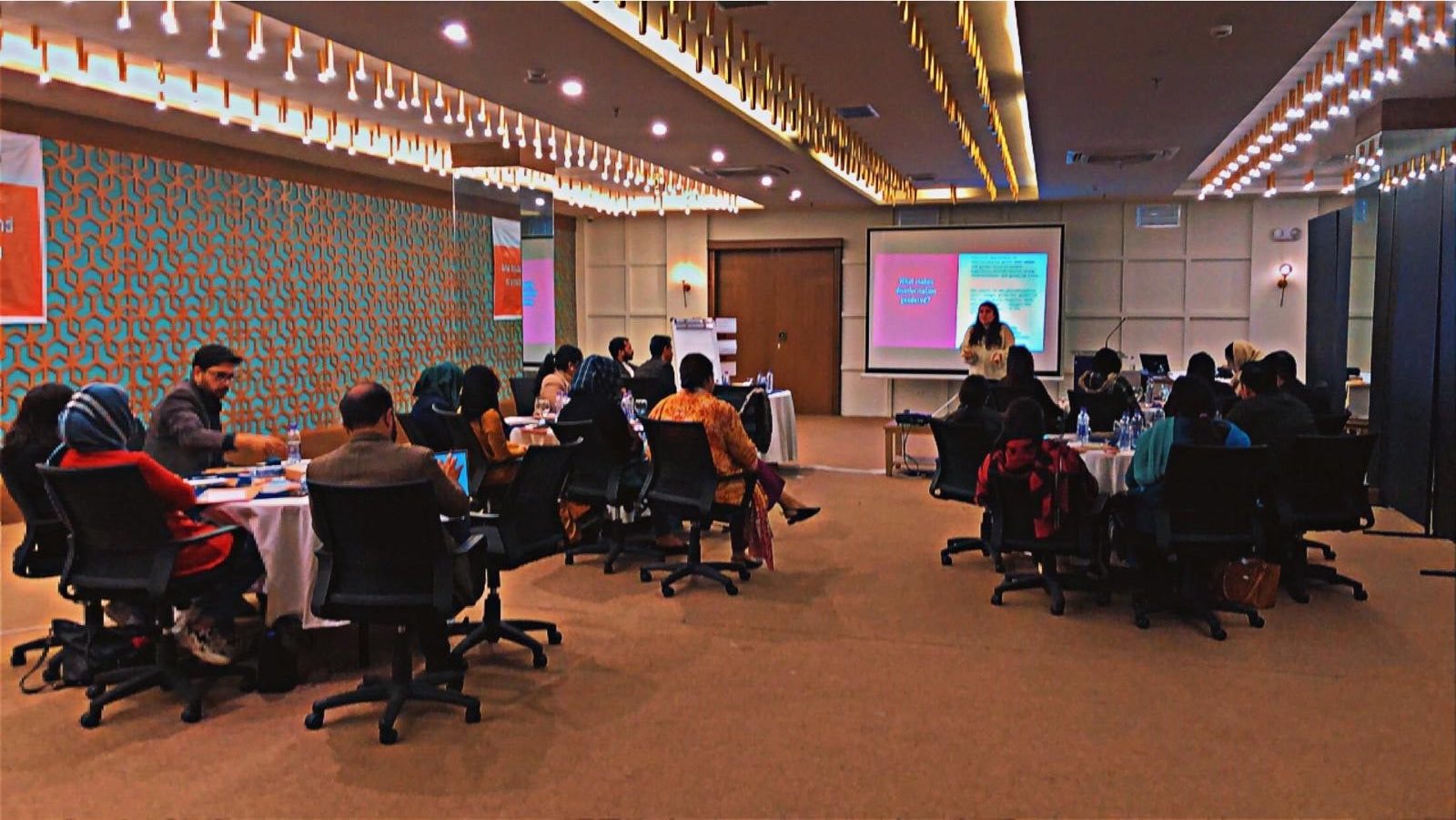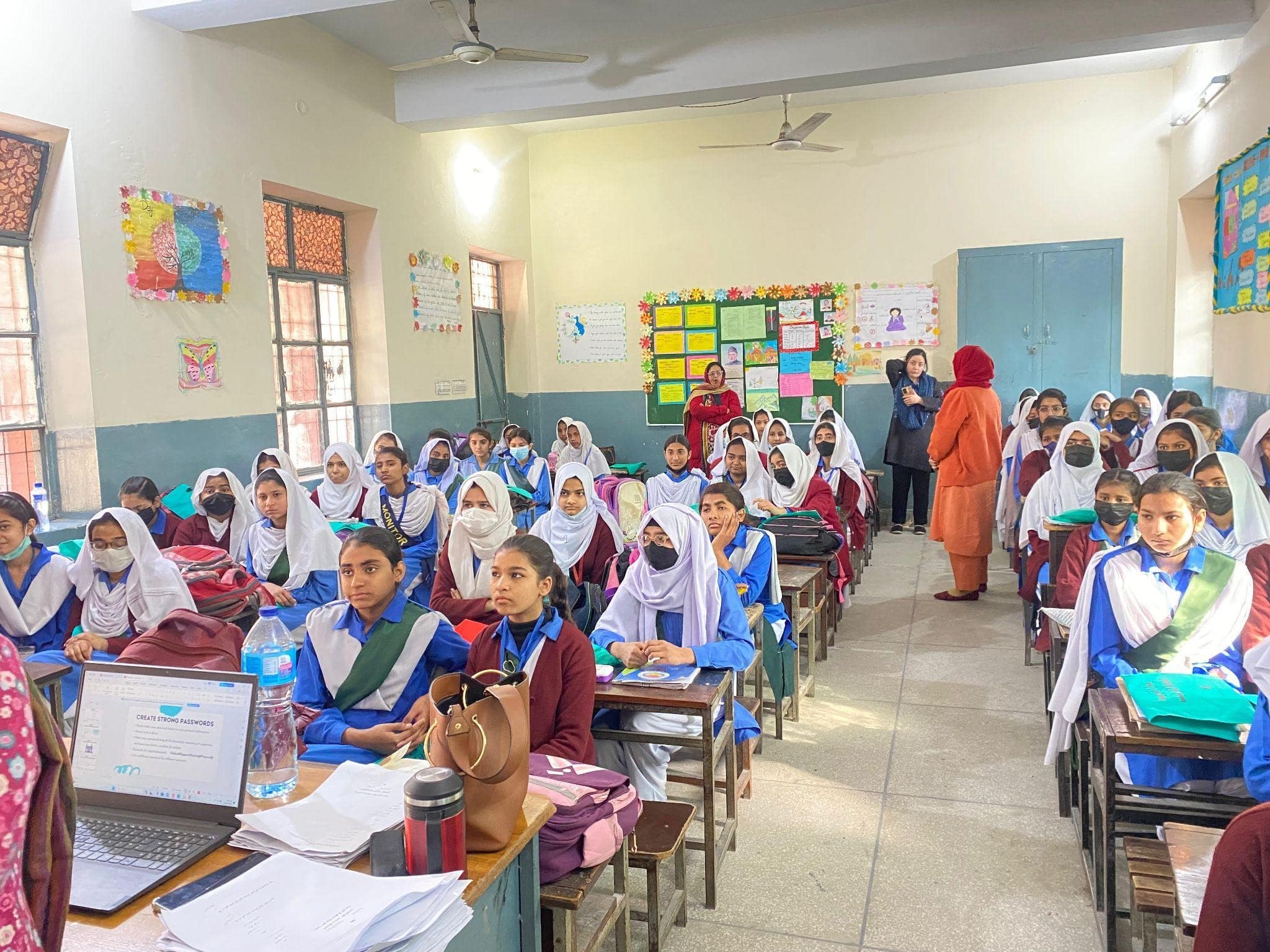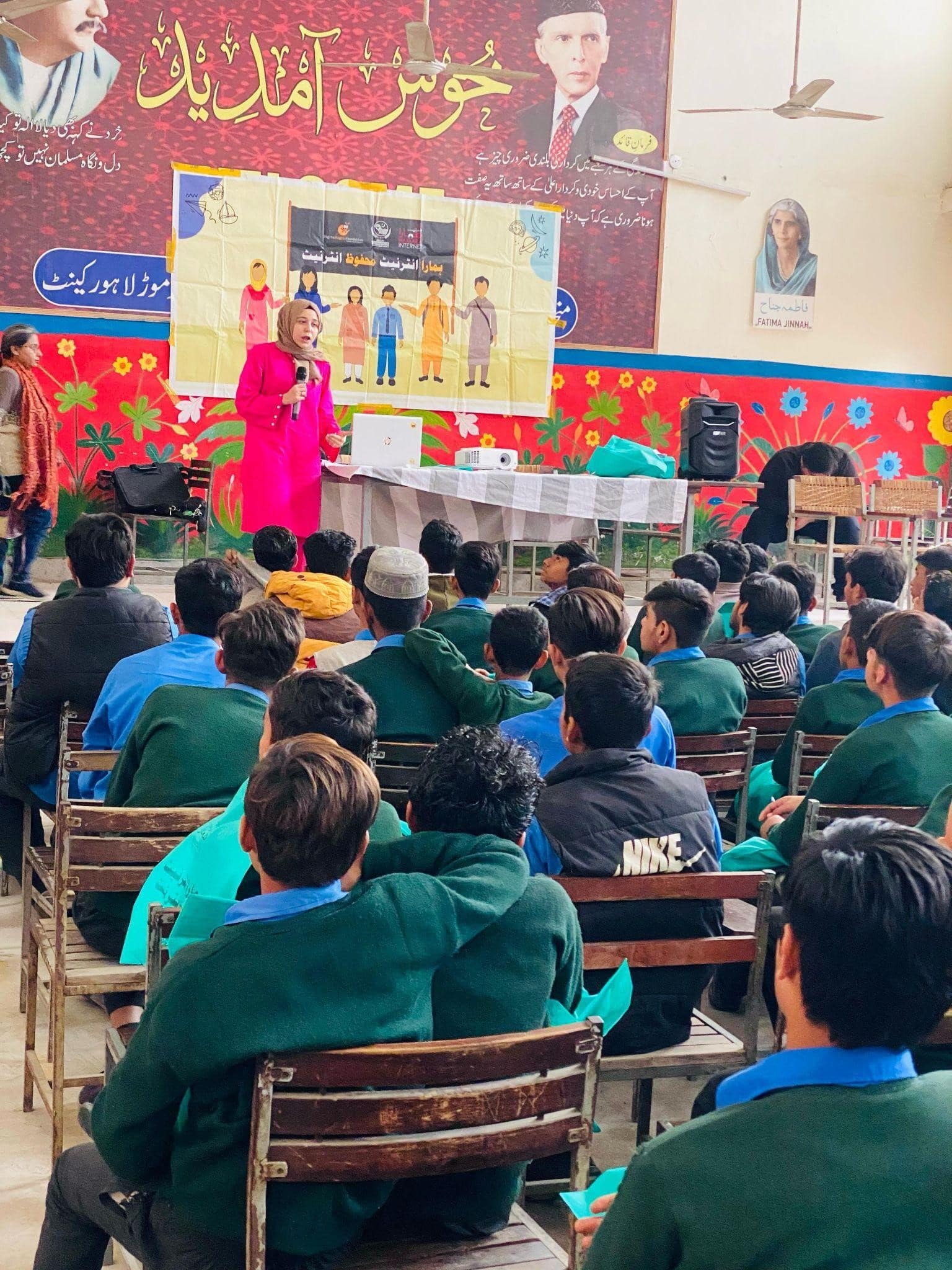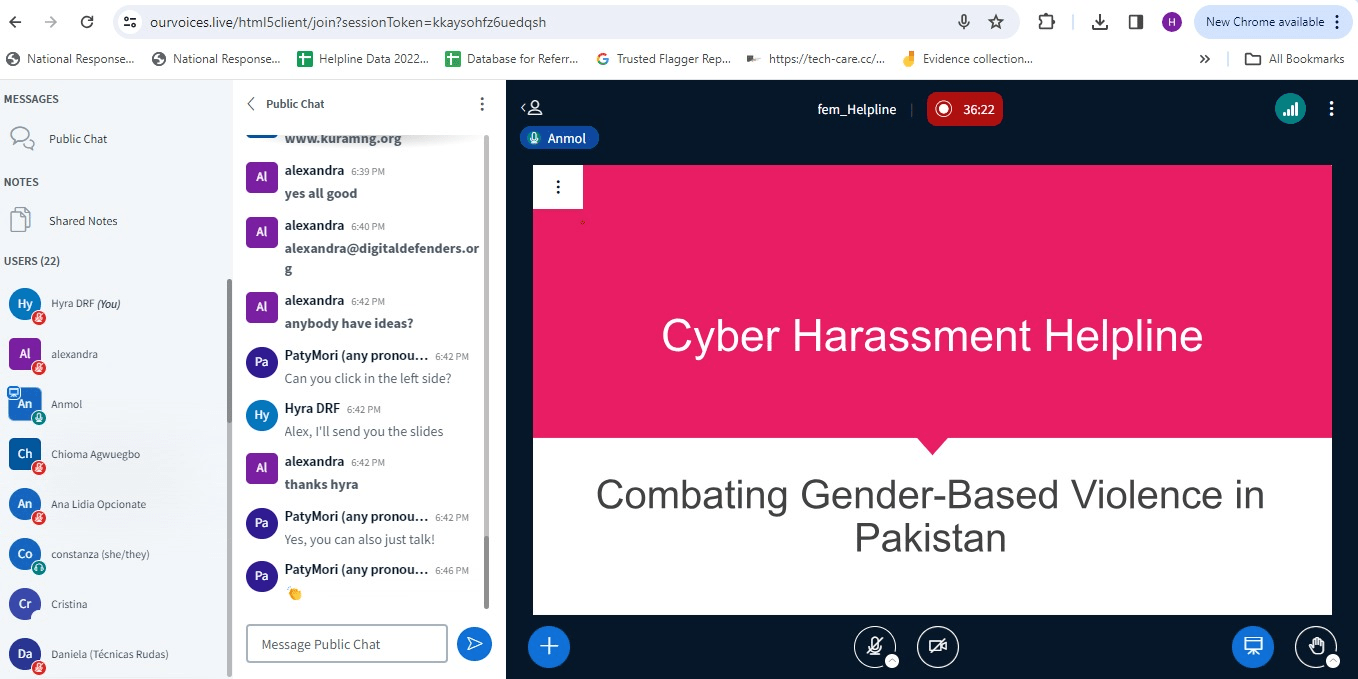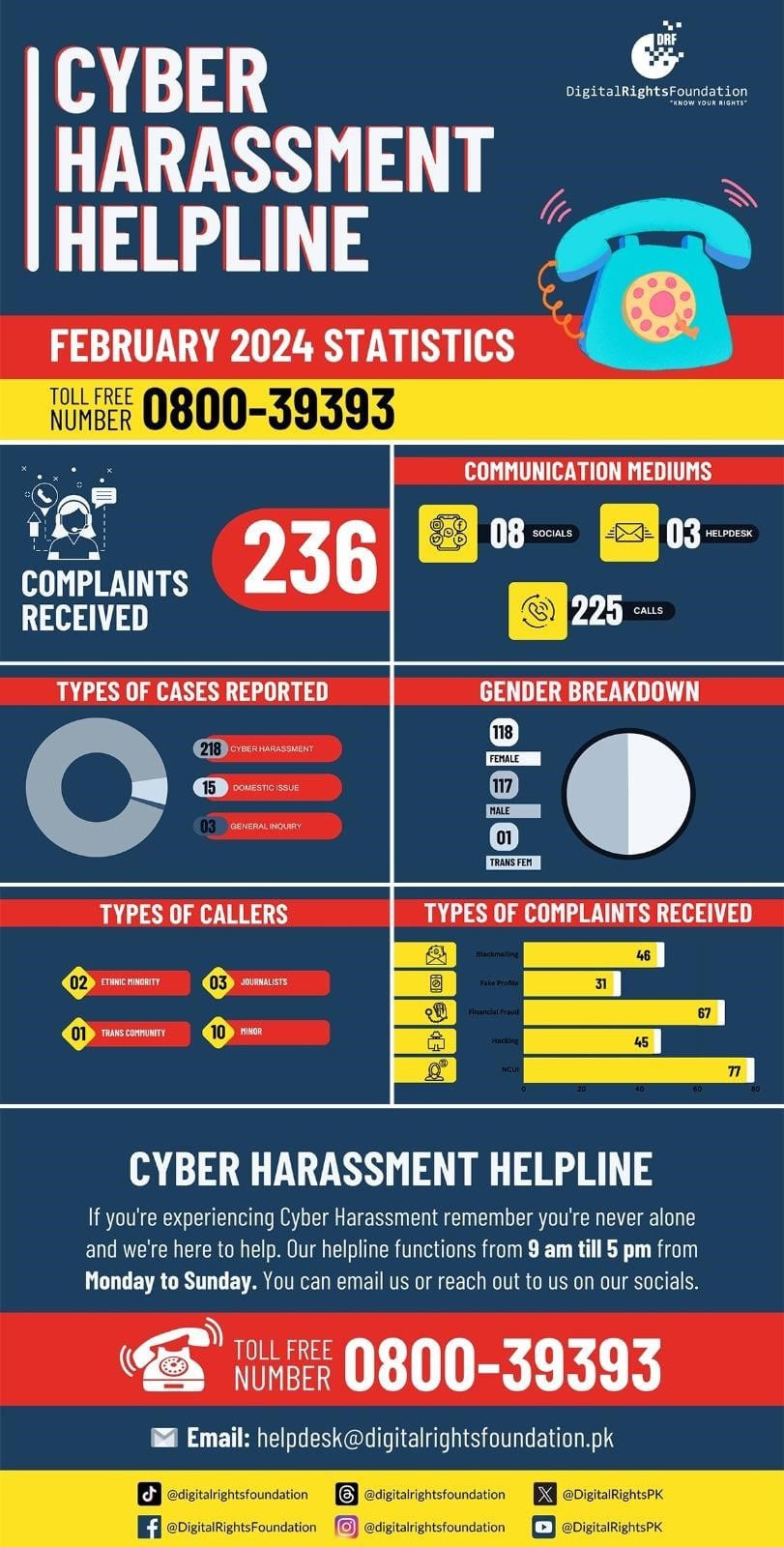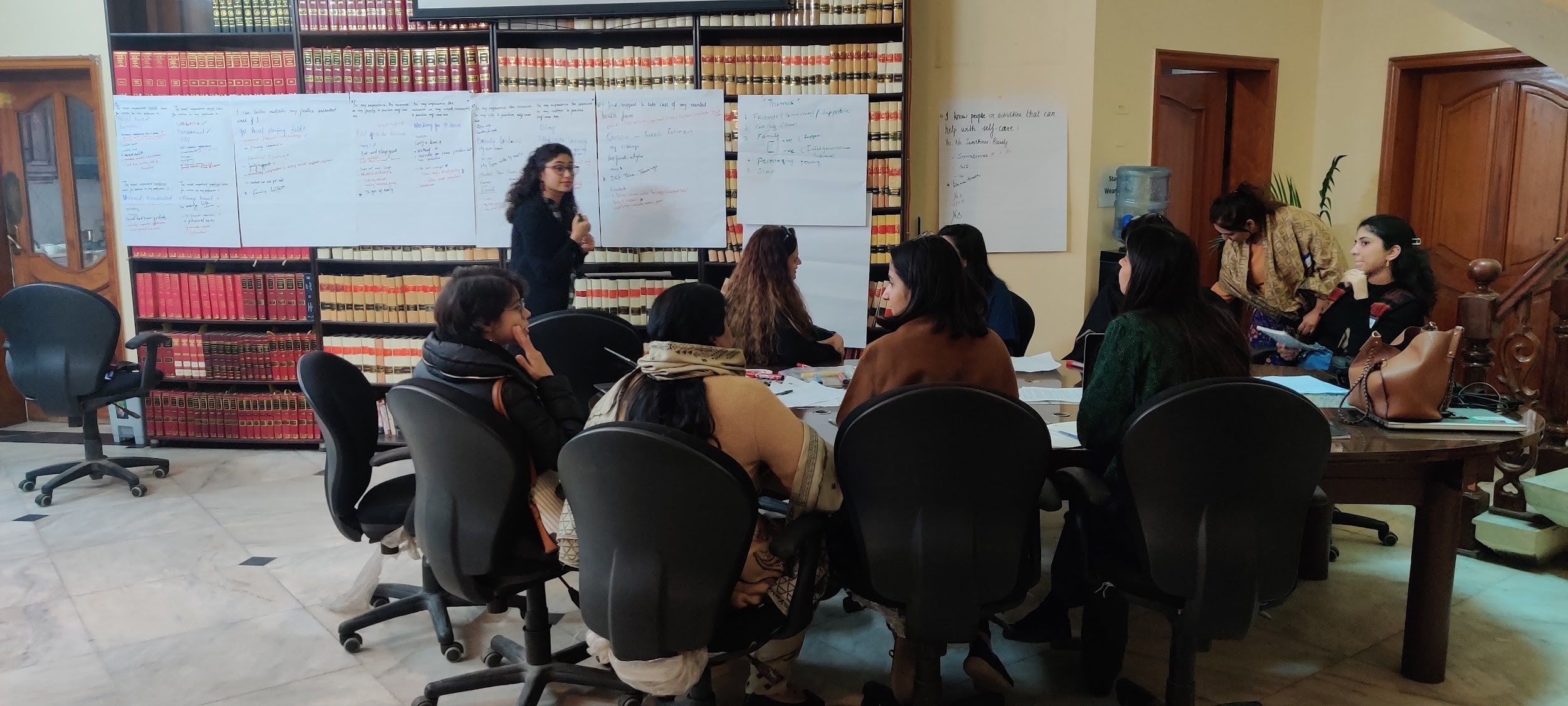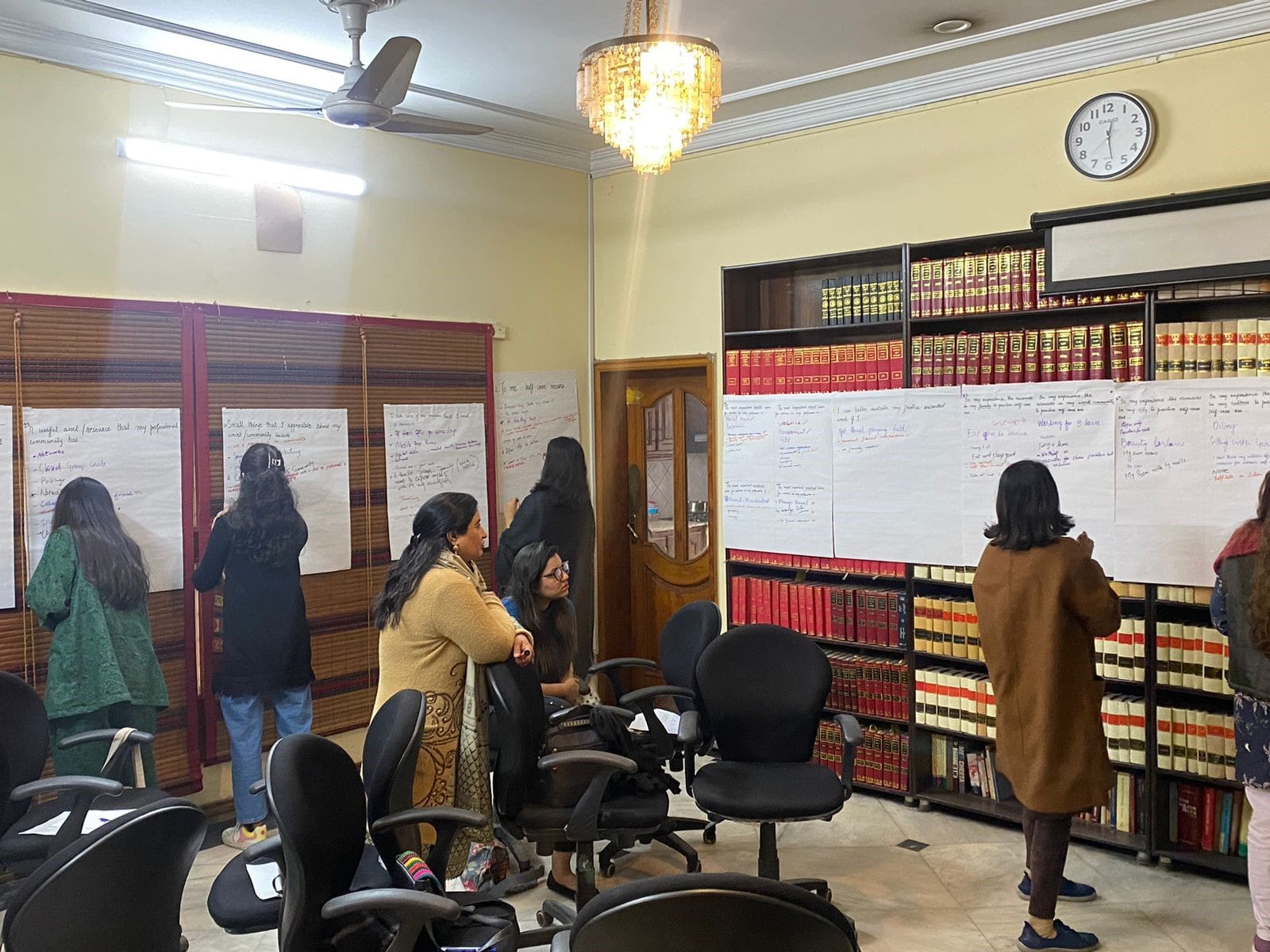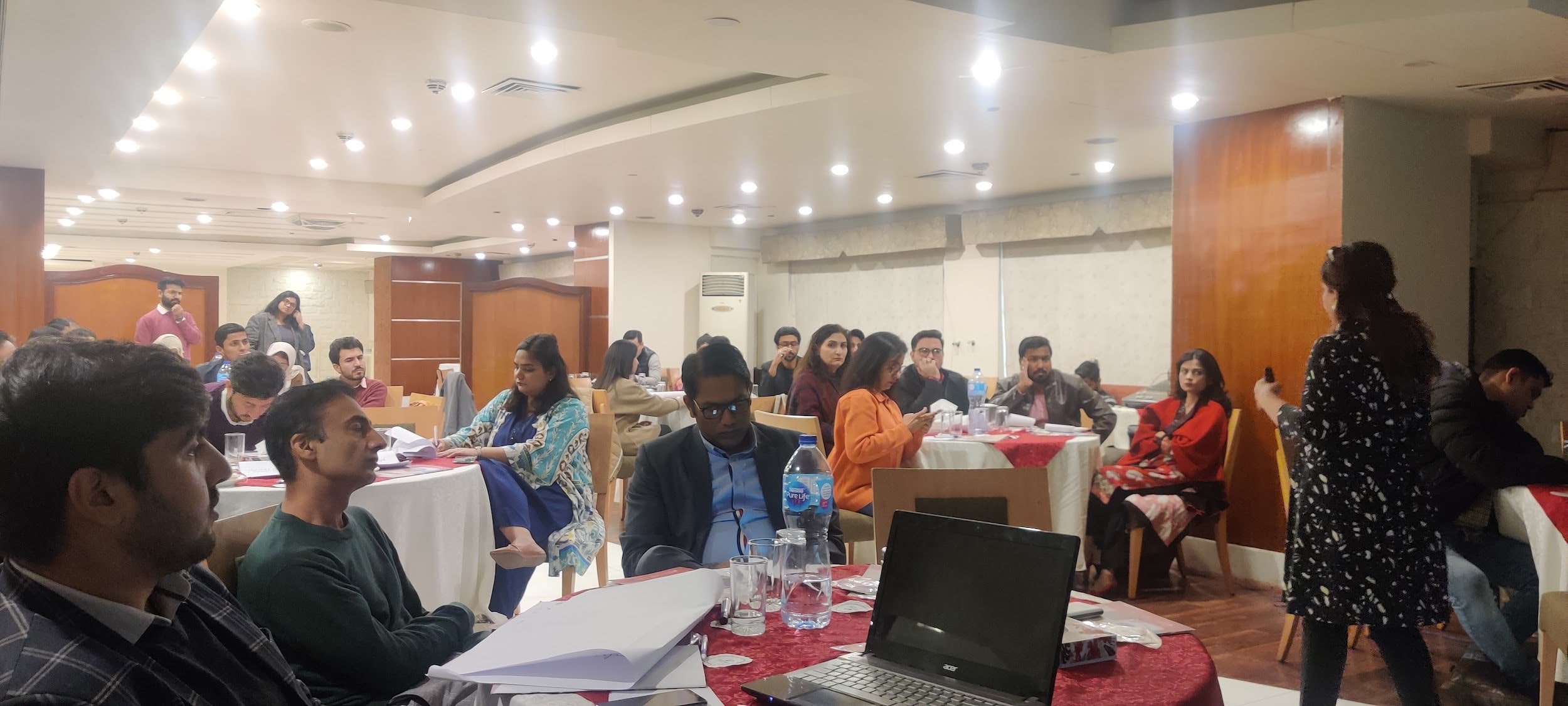Digital Rights Foundation launched its Election Desk. You can follow the initiative on social media through #DRFElectionDesk. And on our website - https://election2024.digitalrightsfoundation.pk/


Policy Initiatives:
DRF Election Desk
6 Point Agenda on Digital Rights Protections For Political Parties’ Electoral Manifestos

DRF's Election Desk has identified six key digital rights issues, and we urge political parties to include them in their manifestos due to the inextricable connection between online and offline spaces.
Read the entire agenda here: https://t.co/vbpw5ednQo
6-Point Agenda on Media Freedom And Journalist Safety For Political Parties’ Electoral Manifestos

More than 100 journalists and members of civil society signed the Network of Women Journalists for Digital Rights' 6-Point Agenda on Media Freedom And Journalist Safety For Political Parties’ Electoral Manifestos.
Read the entire agenda here: https://election2024.digitalrightsfoundation.pk/2024/01/23/pakistan-6-point-agenda-on-media-freedom-and-journalist-safety-for-political-parties-electoral-manifestos/
Spotting Generative Content

- Unnecessary details: Extra fingers and warped backdrops.
- Repetitive imagery: Keep an eye on skin, clothing, or items.
- Disruptive lighting: Physics-defying highlights and shadows!
- Background error: Look for smooth or distorted backdrops!
- Unusual objects: Search for colors spilling over lines or floating hair!
- Reflections and Transparency: AI may alter reality in reflective materials!
- Facial features and movements: Distorted features? AI could be at play!
- Text errors: Typos, incorrect fonts, or formatting issues? Artificial intelligence could be the culprit!
- Lack of Analysis: Short sentences, repeated words, and meaningless content - classic AI giveaways!
WhatsApp Disinformation Tipline

If you come across misleading content online, please contact Mithu via our WhatsApp Disinformation Tip Line at +9203013249539.
Statement by Network of Women Journalists for Digital Rights (NWJDR) - Demanding Accountability, Transparency, and Support for Domestic Violence survivors/victims in the Media Industry

83 journalists, including male journalists, signed Network of Women Journalists for Digital Rights’ statement raising their voices against domestic violence, condemning the alleged case of domestic violence committed by a TV anchor, and demanding the state take measures to address this menace.
Read the full statement here: https://www.instagram.com/p/C2w_qYOi971/?igsh=MXhwYjZ4OHRmcnF0bQ==
Hamara Internet Mahfooz Internet - Digital Citizenship Program

DRF’s 'Hamara Internet Mehfooz Internet' project brought a wave of digital literacy & safety to Lahore's public schools by the end of 2023.
Training 1417 students, 138 teachers, and 31 digital rights youth ambassadors, this initiative is about building a safer digital world for our youth.
https://x.com/DigitalRightsPK/status/1744688973547733035?s=20
Data Privacy Day 2024


Digital Rights Foundation conducted research on 'Data Privacy in Pakistan's Healthcare Sector'. And on this #DataPrivacyDay2024, it is critical to highlight the research available to us to work on data privacy in Pakistan and it is time to #TakeControlofYourData.
Cyber Harassment Helpline Awareness


Press Coverage:
Nighat speaking to Wilton Park, Executive Agency of Foreign, Commonwealth & Development Office UK

Speaking at Wilton Park’s event on human rights and new & emerging technology, DRF’s Executive Director, Nighat Dad reflected on the need to safeguard human rights in tech development & design.
Nighat Dad on Bol News Network

Executive Director of DRF, Nighat Dad, spoke with Bol News about the challenges of combating disinformation in the era of AI and Generative AI. She says we're not prepared to deal with disinformation in this manner.
https://x.com/DigitalRightsPK/status/1749711280158683569?s=20
The deepfake elections are here | Context

DRF’s Executive Director, Nighat Dad, wrote an opinion piece for Context: "The harsh truth is that deep fakes and synthetic media can indeed influence the mindset of voters, and eventually affect the results of elections."
https://www.context.news/ai/opinion/the-deepfake-elections-are-here?utm_source=twitter&utm_medium=social&utm_campaign=context-newsroom
Nighat Dad on PTV News

Nighat Dad, DRF’s Executive Director, went on PTV News to talk about Pakistan’s General Election 2024 and the rampant disinformation online. She explained the meaning of fake news, deep fake & AI generated disinformation that will impact General Election 2024 in Pakistan & how we are just not prepared to handle it.
Nighat Dad on Neo TV

Nighat Dad went on Sahafi program on Neo TV to answer some important questions in relation with the General Elections of Pakistan 2024:
How is propaganda done? How can deep fake and fake news be countered? How prepared is Pakistan to tackle fake news?
Watch it here: https://x.com/NeoNewsUR/status/1750234776446099573?s=20
DRF on Jhoot Such

DRF’s Program Lead Seerat Khan spoke to PTV News’s Jhoot Such about Cyber Stalking and the perils associated with it.
Link to talk: https://www.instagram.com/reel/C2y9cONygwW/?utm_source=ig_web_copy_link

DRF’s Sr. Project Manager Zainab Durrani talked to PTV’s Jhoot Such about the role of AI and Gen AI in the upcoming General Elections in Pakistan 2024.
Link to talk: https://x.com/DigitalRightsPK/status/1746887172513484911?s=20
DRF on Awami Mukalma: Countering Online Hate Speech in Pakistan’s Election Discourse

DRF’s Programs Lead Seerat Khan spoke on Awami Mukalma on countering hate speech in Pakistan’s Election Discourse. Seerat shared insights on what is hate speech and the importance of countering hate speech and reporting it during election time. She was joined on the panel by Asad Baig from Media Matters for Democracy and journalist Adil Shahzeb.
Link to talk: https://www.facebook.com/watch/?v=264054746711667&ref=sharing
DRF in Press
| 1 |
Electronic Frontier Foundation |
Joint Statement on the Proposed Cybercrime Treaty Ahead of the Concluding Session |
https://www.eff.org/deeplinks/2024/01/joint-statement-proposed-cybercrime-treaty-ahead-concluding-session |
| 2 |
Economic Times |
Deepfakes deceive voters from India to Indonesia before elections |
https://economictimes.indiatimes.com/news/elections/lok-sabha/india/deepfakes-deceive-voters-from-india-to-indonesia-before-elections/articleshow/106504149.cms?from=mdr |
| 3 |
The Hindu |
Deepfakes deceive voters from India to Indonesia before elections |
https://www.thehindu.com/sci-tech/technology/deepfakes-deceive-voters-from-india-to-indonesia-before-elections/article67700785.ece |
| 4 |
Telecom | The Economic Times |
Deepfakes deceive voters from India to Indonesia before elections |
https://telecom.economictimes.indiatimes.com/news/internet/deepfakes-deceive-voters-from-india-to-indonesia-before-elections/106498476 |
| 5 |
Phone World |
Doctored Videos Of Politicians Circulate In India, Pakistan Ahead Of Elections 2024 |
https://www.phoneworld.com.pk/doctored-videos-of-politicians-circulate-in-india-pakistan-ahead-of-elections-2024/ |
| 6 |
The Friday Times |
Political Parties Urged To Include Digital Protections In Electoral Manifestos |
https://thefridaytimes.com/04-Jan-2024/political-parties-urged-to-include-digital-protections-in-electoral-manifestos |
| 7 |
BNN |
Digital Rights Foundation Calls for Inclusion of Digital Rights in Pakistan’s Electoral Platforms |
https://bnnbreaking.com/politics/digital-rights-foundation-calls-for-inclusion-of-digital-rights-in-pakistans-electoral-platforms/ |
| 8 |
The Current |
Legal fraternity criticizes Justice Naqvi’s resignation over expected perks |
https://thecurrent.pk/justice-mazahar-ali-akbar-naqvi-resigns-from-supreme-court/ |
| 9 |
The CS Monitor |
Could TikTok hoaxes tip upcoming South Asian elections? |
https://www.csmonitor.com/World/Asia-South-Central/2024/0111/Could-TikTok-hoaxes-tip-upcoming-South-Asian-elections |
| 10 |
Context News |
The deep fake elections are here |
https://www.context.news/ai/opinion/the-deepfake-elections-are-here |
| 11 |
Urdu Point |
Digital rights activist calls for public awareness of fake news |
https://www.urdupoint.com/en/pakistan/digital-rights-activist-urges-public-awarenes-1785955.html |
| 12 |
Dawn |
Online rallies, AI script: New threats loom ahead of 2024 polls |
https://www.dawn.com/news/1806163/online-rallies-ai-script-new-threats-loom-ahead-of-2024-polls |
| 13 |
Pi News |
Digital rights activist calls for public awareness of fake news |
https://proiqra.com/digital-rights-activist-calls-for-public-awareness-of-fake-news-pi-news/ |
| 14 |
Minute Mirror |
Digital Rights Foundation unveils 6-point agenda on media freedom, journalist safety ahead of general elections |
https://minutemirror.com.pk/digital-rights-foundation-unveils-6-point-agenda-on-media-freedom-journalist-safety-ahead-of-general-elections-174597/ |
| 15 |
The Nation |
Social media, internet services reportedly down again in parts of Pakistan |
https://www.nation.com.pk/20-Jan-2024/social-media-internet-services-reportedly-down-again-in-parts-of-pakistan |
| 16 |
The News |
Fintech industry for kids faces cybersecurity risks: experts |
https://www.thenews.com.pk/print/1149821-fintech-industry-for-kids-faces-cybersecurity-risks-experts |
| 17 |
Voice.pk |
100 Journalists Sign Agenda For Inclusion Of Media, Digital Rights In Party Manifesto |
https://voicepk.net/2024/01/100-journalists-sign-agenda-for-inclusion-of-media-digital-rights-in-party-manifesto/ |
| 18 |
Gulf Times |
Deepfakes deceive voters from India to Indonesia before polls |
https://www.gulf-times.com/article/676002/opinion/deepfakes-deceive-voters-from-india-to-indonesia-before-polls |
| 19 |
Ifex |
Looking ahead: Censorship, AI, disinformation, and repression undermining elections |
https://ifex.org/looking-ahead-censorship-ai-disinformation-and-repression-undermining-elections/ |
| 20 |
Nikkei Asia |
Pakistan social media outages squeeze Imran Khan party's last bastion |
https://asia.nikkei.com/Politics/Pakistan-social-media-outages-squeeze-Imran-Khan-party-s-last-bastion |
| 21 |
The Nation |
Demanding accountability, transparency, and support for domestic violence survivors/victims in the media industry |
https://www.nation.com.pk/31-Jan-2024/demanding-accountability-transparency-and-support-for-domestic-violence-survivors-victims-in-the-media-industry |
| 22 |
The Media Line |
Press Under Fire: Concerns Rise for Journalistic Freedoms in Pakistan After Reporters Summoned for Defaming Judiciary |
https://themedialine.org/people/press-under-fire-concerns-rise-for-journalistic-freedoms-in-pakistan-after-reporters-summoned-for-defaming-judiciary/ |
| 23 |
TechPolicy.Press |
A Growing Number of Women Activists Confront Technology and Gender-Based Violence |
https://www.techpolicy.press/a-growing-number-of-women-activists-confront-technology-and-genderbased-violence/ |
| 24 |
The Minute Mirror |
83 journalists of Pakistan take firm stand for Nomaika Ashfaque Satti |
https://minutemirror.com.pk/83-journalists-of-pakistan-take-firm-stand-for-nomaika-ashfaque-satt-180734/ |
Events:
DRF at Alan Turing Institute at London School of Economics

DRF's Research Lead, Maryam Saeed, spoke at a panel hosted by the Alan Turing Institute in collaboration with the London School of Economics' Media and Communications Department. Alan Turing's data justice documentary was also shown at the event as part of their Advancing Data Justice Research Project, which included DRF as one of 12 global policy partners.
Watch the documentary here: https://youtube.com/watch?v=x0nCU9ptWqc&list=PLuD_SqLtxSdWAn5DuZu-ExBr46CvfYBek&index=4
Policy Dialogue at LUMS

DRF's Legal Team, represented by Irum Shujah and Shafia Imran, attended the Policy Dialogue event organized by the Directorate General Social Welfare & Bait ul Maal, Punjab, at LUMS. The legal team actively shaped the discourse around the forthcoming policy document to the Social Welfare and Bait ul Maal Department, Punjab.
During this dialogue, the legal team advocated for crucial aspects of digital inclusion and protection while emphasizing the need for digital literacy programs, robust data protection measures, and the importance of user-friendly online services. Additionally, the team underscored the importance of cybersecurity awareness and proposed collaboration with DRF to tackle evolving digital challenges.
TikTok CPC Training
DRF was invited to attend a training session on the new escalation system designed by TikTok. The Cyber Harassment Helpline team attended and has already started to use the new portal for escalating user complaints.
Capacity building workshops in Islamabad and Karachi


DRF organized a series of three in-person capacity building workshops on navigating technology-facilitated online harms during the upcoming elections in Pakistan. Through our series of workshops, we aimed to build the capacity of social media users on different forms and nature of technology-facilitated online harms and the best practices to ensure that the digital spaces are accessible and their participation is safe in the charged political environment during the elections. The second workshop was held on 11th January in Islamabad with 25 participants and the third workshop was held on 18th January in Karachi with 28 participants from diverse religious backgrounds. They shared their experiences of online spaces and how it has impacted their lives in the real world.
Digital Citizen Program in Government Schools:
After the winter break, DRF held two sessions in government high schools in Lahore. 355 students (females and males) and 33 teachers were informed about ways of staying safe in online spaces and reporting mechanisms in case of harassment or bullying. The participants were given gift bags with online safety resources and stationary.


Cyberbullying and online safety session at LGS International

DRF’s program lead Seerat Khan conducted a session on ‘'Cyberbullying and online safety’' at the LGS International school which was attended by 80 students from middle school. Students enthusiastically participated in the session and asked questions about specific online safety practices they should be keeping in mind.
Source Verification and Fact-checking workshop for Journalists during Elections held in Peshawar


DRF conducted a session on source verification and fact-checking in Peshawar with the support of Meta keeping in mind the upcoming general elections. The one day workshop addressed the emergence of disinformation and misinformation during elections and how to tackle and report dis/misinformation during this time and was attended by 30 journalists from Peshawar and adjacent areas.
DRF Updates:
Cyber Harassment Helpline

The Cyber Harassment Helpline received 260 complaints in total in January, with 127 complaints by men. If you’re encountering a problem online, you can reach out to our helpline at 0800-39393, email us at [email protected] or reach out to us on our social media accounts. We’re available for assistance from 9 am to 5 pm, Monday to Friday.
IWF Portal

DRF in collaboration with Internet Watch Foundation (IWF) and the Global Fund to End Violence Against Children launched a portal to combat children’s online safety in Pakistan. The new portal allows internet users in Pakistan to anonymously report child sexual abuse material in three different languages- English, Urdu, and Pashto.
www.report.iwf.org.uk/pk
StopNCII.org
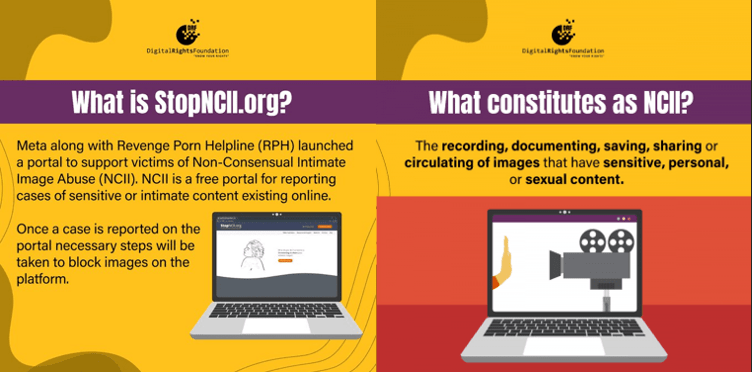

Meta along with Revenge Porn Helpline (RPH) has launched a portal to support victims of Non-Consensual Intimate Image Abuse (NCII). NCII is a free portal for reporting cases of sensitive or sexual content existing online. Once you report a case, the necessary steps will be taken to block the images from the platform.
https://stopncii.org/














